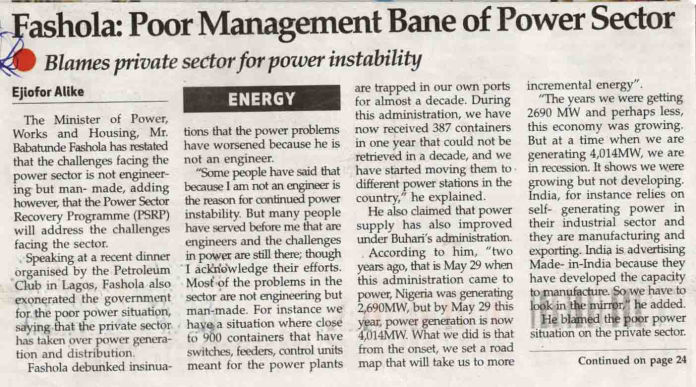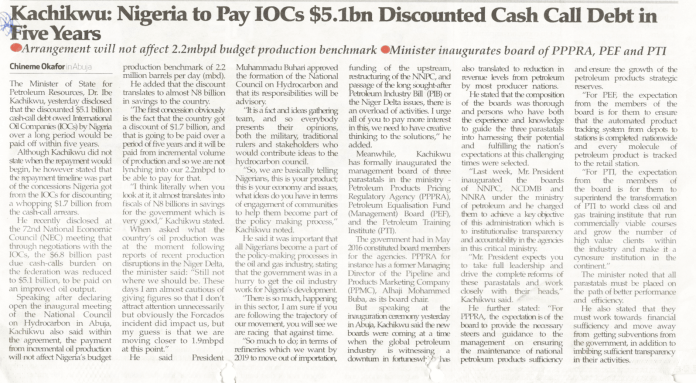The Minister of Power, Works and Housing, Babatunde Raji Fashola, has insisted that the challenges facing the power Sector is not technical but manmade, The Guardian reports.
Speaking at a dinner organised by the Petroleum Club in Lagos last week, he clarified, “some people have said because I am not an engineer is the reason for continued power instability. But many people have served before me that are engineers and the challenges in power are still there, though I acknowledge their efforts.” He added; “Most of the problems in the sector are not engineering but manmade. For instance, we have a situation where close to 900 containers that have switches, feeders, control units meant for the power plants are trapped in our own ports for almost a decade.”
In addition, he said: “today, the power is largely controlled by the private sector, that is the Distribution Companies (Discos) and the generating companies (Gencos)[…]so if we are not generating or distributing power, whose fault? Government is only the manager of the transmitting company.” He continued, “The problem is also a value chain issue; you don’t solve one and leave the other. If Nigerians understand the situation on ground, they will be more considerate in their assessment and work with us to get there.”
To view full article, visit this link


